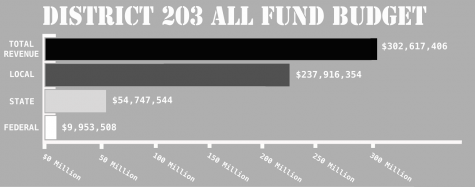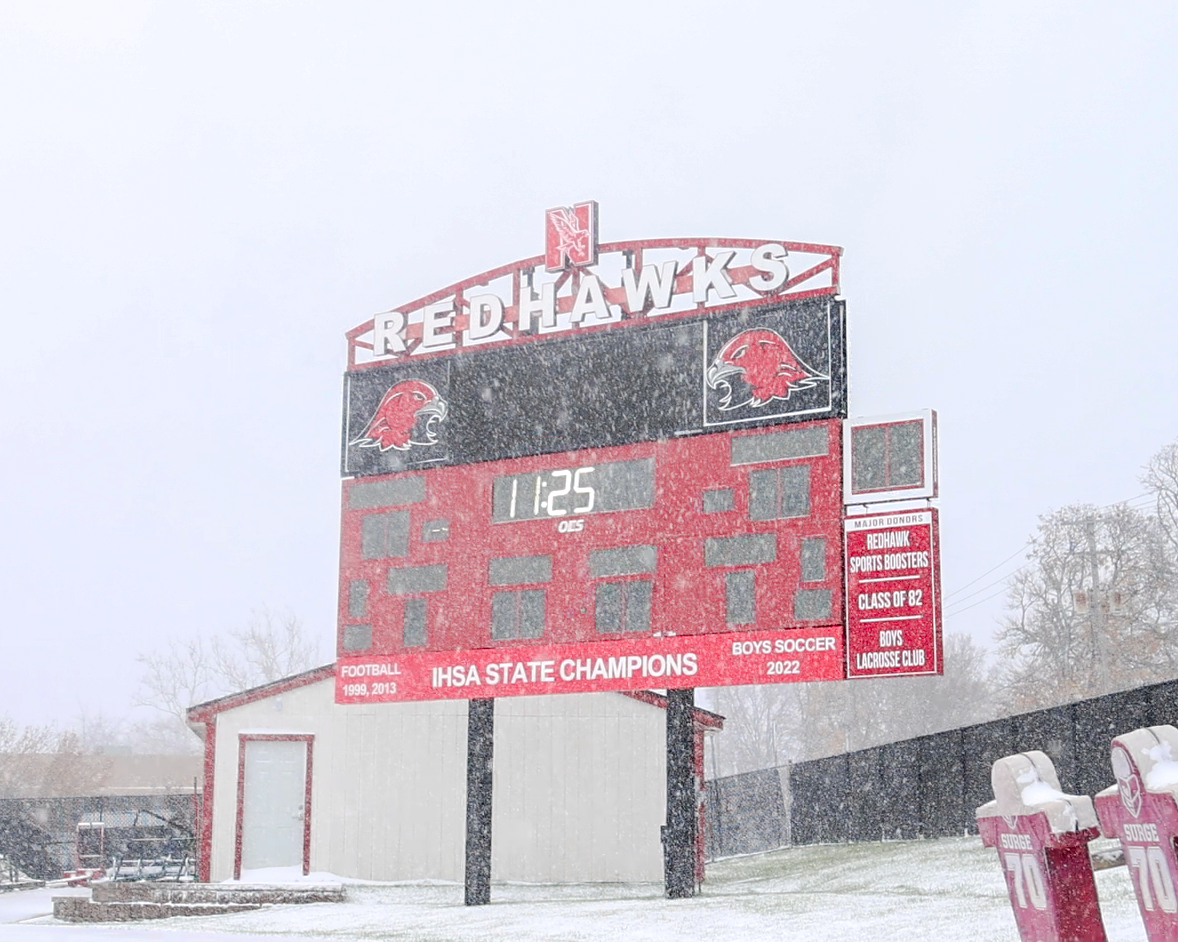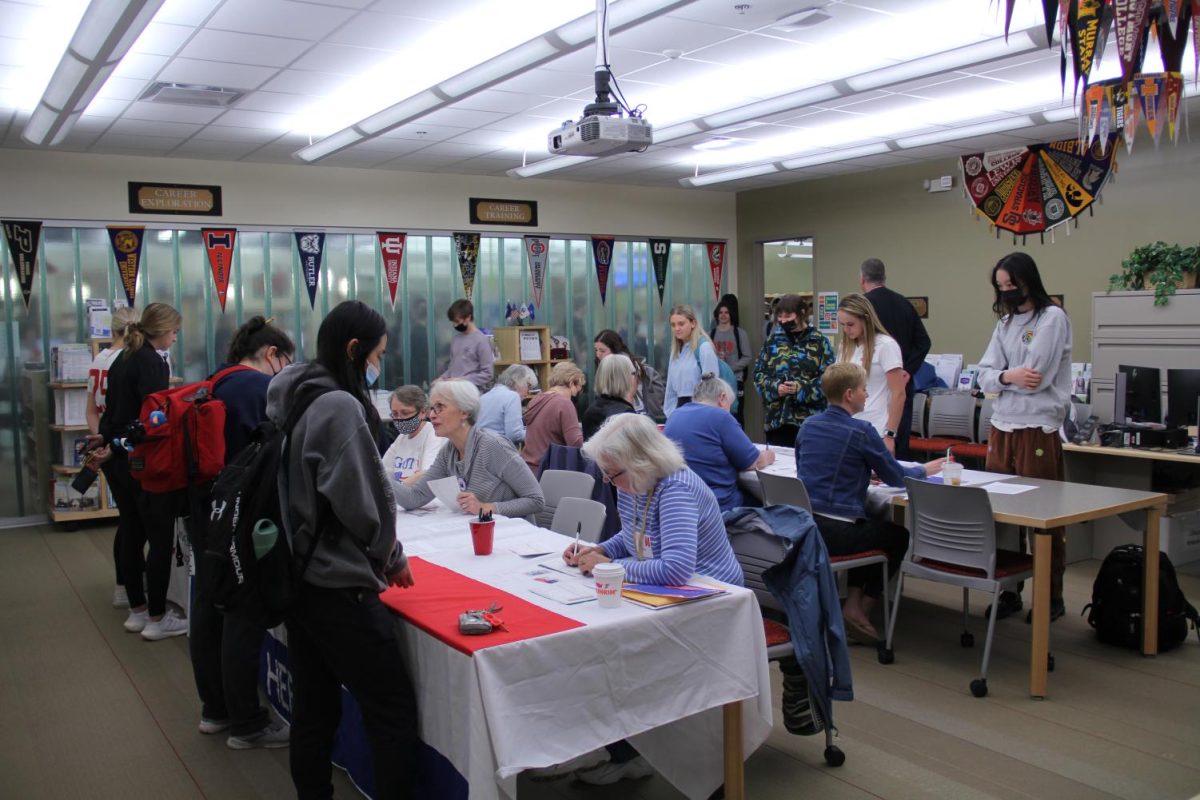Proposed changes for education funding in Illinois will affect District 203
December 20, 2014
Senate Bill 16, also known as the School Funding Reform Act of 2014, passed the Illinois Senate on May 27 and is awaiting further consideration in the House of the Illinois General Assembly.
This bill seeks to fix Illinois’ current funding for public education. According to the study “Is School Funding Fair? A National Report Card. Second Edition” by the Education Law Center and Rutgers Graduate School of Education, Illinois is the second most regressive state in the country in terms of school funding distribution. This means that high-poverty districts in Illinois get fewer dollars from state and local sources than do low-poverty districts. This report gave Illinois an “F” grade in funding distribution.
The School Funding Reform Act of 2014 is designed to redistribute state funds with a new weighted formula, rather than increasing the amount of funding for Illinois schools. Through this redistribution, districts with higher available local resources—as determined by the state based on local property values—would lose funding and districts with lower property values would receive higher state aid. By applying this bill, District 203 would incur the sixth largest reduction in state funding in Illinois, losing $9.45 million.

The main source of funding for District 203 is local revenue, mainly property taxes. According to the District 203 All Fund Budget Summary, the proposed budget for the 2014-2015 school year is approximately $302 million. Of this, around $238 million comes from local sources, $54 million from state sources and $10 million from federal funds.
According to Bill Wiesbrook, Naperville Central’s principal, if this bill is passed, the District will either have to seek out revenue or cut expenditures.
“We would have to find a way to get more revenue to come in—likely that would be ‘let’s raise the property taxes’ so we can get more money to compensate for what we lost—or we would have to quit spending so much,” Wiesbrook said. “The potential exists that we might have to cut our expenses in the near future. Usually the big two ideas schools come up with to cut their expenses are reducing staffing or cutting out opportunities or programs for kids.”
District 203 Superintendent Dan Bridges has been active in the community and Springfield, presenting arguments against Senate Bill 16. On Sep. 25, District 203, Indian Prairie District 204 and Wheaton Warrenville District 200 held a legislative breakfast at Lincoln Junior High School to speak with legislators on Senate Bill 16. State Representative Linda Chapa LaVia of Aurora, a chief sponsor of the bill in the House, was present at this breakfast. Bridges met with members of the Naperville Area Homeowners Confederation, and also went to the State Capitol to testify before a joint hearing of two House Committees. The district coordinates efforts with other DuPage County schools, all members of Legislative Education Network of DuPage County (LEND).
Even though the enactment of this bill will result in losses for all DuPage County school districts except for one, several districts in the area will benefit. West Aurora School District 129 and East Aurora School District 131 are two examples. District administrators from these districts are supportive of this bill, and also traveled to the State Capitol to testify.
Laura Starke, communication arts teacher and sponsor of Central’s Junior State of America chapter, recognizes there is a need for reform but does not believe Senate Bill 16 to be the proper way to address it.
“It is our state’s lame effort—instead of funding everybody equitably—to spread the money around so that poorer school districts will be properly funded,” Starke said. “The thing is, everybody should be properly funded, but Illinois does not have the funds because we’re practically bankrupt.”
Wiesbrook encourages students and community members to learn more about the bill and contact legislators on the subject.
“Potentially, [Senate Bill 16] could be bad for Naperville Central students,” Wiesbrook said. “It hasn’t been passed yet, so there is still time to influence the lawmakers to vote against this bill.”








LAWRENCE FACCHINELLO • Nov 24, 2016 at 3:14 pm
Each community has to live with their means. Much like each house hold must.
Of much concern to me, is I am a retired senior citizen living on a fixed income. No consideration is given to or cause when taxes are increased. don’t count that $500 token
This near view is driving families out of Illinois.